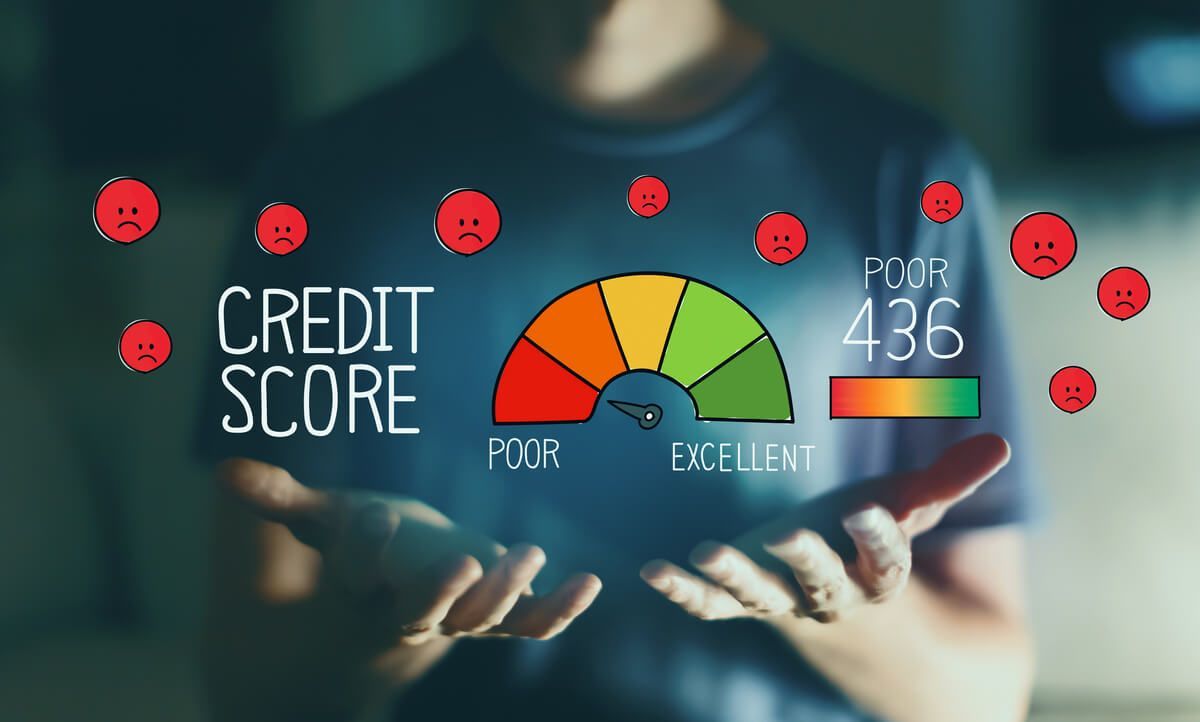In the realm of home purchasing, the sheer volume of "should-dos" can be overwhelming, making it appear counterproductive to focus on what to avoid. Yet, recognizing the "don'ts" is just as crucial as the "dos" when it comes to the most significant financial investment of your life.
Understanding what not to do could potentially secure you more favorable financing terms and help you attain your dream home.
While it's apparent that certain actions, such as changing your job or co-signing a loan, should be avoided, have you ever contemplated how depositing cash or financing a new piece of furniture might influence your mortgage eligibility?
As your "to-do" list grows when it comes to buying a property, make sure to keep your "not-to-do" list close at hand.
Continue reading to ensure you sidestep these common mistakes and remain vigilant before making your initial offer on a property.
#1 Don't overestimate your affordability
Before embarking on the quest for your ideal property, it's imperative to obtain pre-approval. Wasting time searching for homes beyond your budget can lead to emotional turmoil if your pre-approved amount falls far short of your expectations.
To avoid this disappointment, it's wise to perform a preliminary financial assessment before meeting with a mortgage broker. These professionals typically calculate your debt-to-income ratio (DTI), taking your monthly debt obligations and dividing them by your monthly income. Most mortgage brokers prefer to maintain your DTI below 33%. For instance, if your monthly debt obligations amount to $1,500 (excluding bills like cell phone and utilities) and your monthly income is $6,000, your DTI stands at 25%. They will then compute your prospective monthly mortgage payment to ensure your overall DTI remains below 33%.
Tracking your spending habits can be a useful method for understanding your financial behavior. Numerous apps, like Mint or Itab, allow you to record your daily expenses, including bills, enabling you to assess your monthly savings. By substituting your current rent or mortgage payment with an estimated monthly mortgage payment that you feel comfortable with, you can ensure your finances align with your preferences.
Your lifestyle preferences, such as travel and dining, should be considered when determining your disposable income, so make sure it aligns with your personal life.
#2 Don't become emotionally attached
Discovering the perfect home can lead to emotional entanglements that may not serve your best interests. Depending on the market conditions and the time of year, there may be other offers on the property, or unexpected issues like a problematic home inspection could derail your offer.
Enter the home-buying process with a strong intention but minimal attachment. This approach will help maintain your optimism while searching for the perfect abode.
#3 Don't make significant purchases
When contemplating a home purchase, refrain from making substantial expenditures, such as buying a new car, furniture, or home entertainment equipment. Banks scrutinize your financial history, including recent transactions.
Your mortgage pre-approval hinges on your financial situation at the time of the application. Making a large purchase, which depletes your account balance, could lead to the bank's reluctance to lend you the amount required for your mortgage. While it's tempting to imagine furnishing your new property or parking a new car in your dream home's driveway, it's best to wait until after the property is officially yours and you're certain you can afford it.
#4 Don't deposit or withdraw large sums of cash
Avoid depositing or withdrawing substantial amounts of cash. Your financing institution may flag significant deposits as potential loans from other lenders or banks, which would add to your debt obligations alongside your mortgage, negatively affecting your loan-to-debt ratio.
If a family member gifted a portion of your down payment, they might need to provide a letter affirming that it was a gift with no expectation of repayment. Any situation where repayment is expected would add to your monthly debt obligations.
If you happen to receive a significant sum from selling an asset like a car or a repayment of a debt owed, it's essential to substantiate its legitimacy. Most lenders review up to 60 days of bank statements, so preparing your documentation before applying for a mortgage is crucial to account for significant withdrawals or deposits.
#5 Don't seek additional credit
The amount you can secure for your home loan depends on your savings and income. Any new debts could decrease the approved loan amount significantly, so avoid applying for additional credit during the mortgage application process.
#6 Don't co-sign a loan
While it may seem like common sense, co-signing a mortgage for a friend or family member might not raise initial concerns. However, co-signing can substantially affect your ability to secure your own mortgage. In the event that the co-borrower defaults on the loan, you become responsible for the payments, which can jeopardize your capacity to meet your own financial obligations. In such scenarios, prioritize safeguarding your financial interests.
#7 Don't finance new purchases
The process of purchasing a new home often coincides with the temptation to buy new appliances, furniture, or electronics. However, financing such acquisitions before closing can hinder, rather than help. Focus on ensuring your ability to afford these items in the first place, and resist the urge to accumulate more debt.
#8 Don't change jobs, quit, or start a business
Your financial stability is the primary factor that lenders consider when granting a mortgage. Changing jobs or leaving employment can create doubt about your financial stability, potentially jeopardizing your chances of securing a mortgage. If you plan to switch jobs or start a business, it's advisable to do so after closing on the property.
#9 Don't miss loan payments
To maintain a strong credit score, ensure that you don't miss any loan payments. While it's less likely if you have good credit, unforeseen circumstances such as extended work-related travel, illness, or family emergencies can lead to missed payments. Missing a 30-day payment can substantially impact your credit score, which is critical for your pre-approval.
#10 Don't switch banks
Although bank switches are infrequent, they can be enticing, especially when offered bonuses like TVs or cashback. However, changing banks just before applying for a mortgage can be detrimental to your pre-approval process. Stick with your current bank, allowing you to provide at least 60 days' worth of transaction history and account balances. While it may seem trivial, switching banks at the last minute can complicate your life unnecessarily.
In conclusion, the list may appear extensive, but by understanding these potential pitfalls, you can avoid various complications that could hinder your ability to secure financing when buying a new home. Organizing your finances and documents before seeking pre-approval, along with obtaining pre-approval before searching for a home, positions you well for success. Once you have pre-approval, you'll have a clear understanding of what not to do to ensure a smooth closing process. While the journey to mortgage pre-approval may be demanding and time-consuming, the effort is undoubtedly worthwhile when you finally unlock the door to your dream home.












